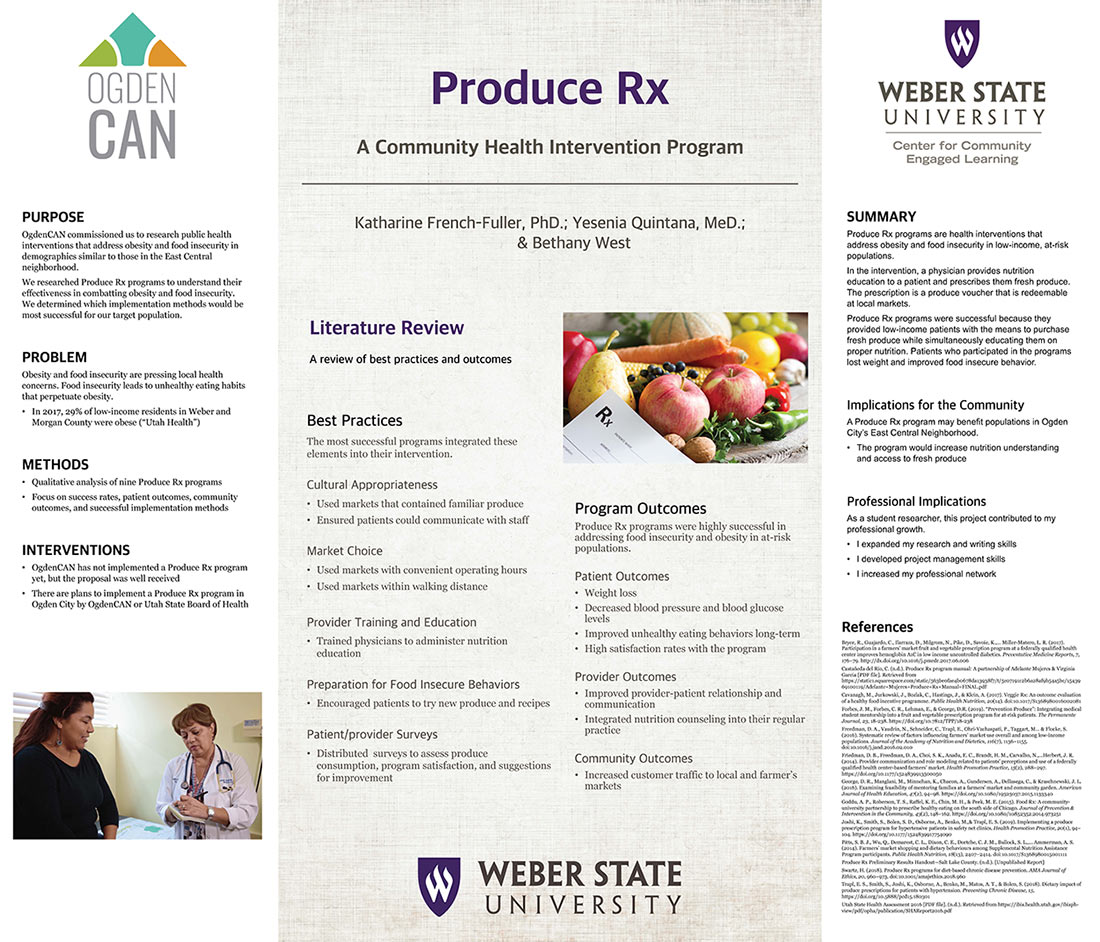
Produce Rx: A Community Health Intervention Program

Authors: Bethany West; Katharine French-Fuller, PhD.; & Yesenia Quintana, MEd.
Purpose
OgdenCAN commissioned us to research public health interventions that address obesity and food insecurity in demographics similar to those in the East Central neighborhood. We researched Produce Rx programs to understand their effectiveness in combating obesity and food insecurity. We determined which implementation methods would be most successful for our target population.
Problem
Obesity and food insecurity are pressing local health concerns. Food insecurity leads to unhealthy eating habits that perpetuate obesity.
In 2017, 29% of low-income residents in Weber and Morgan County were obese (“Utah Health”)
Literature Review
Best Practices:
The most successful programs integrated these elements into their intervention.
Cultural Appropriateness
- Used markets that contained familiar produce
- Ensured patients could communicate with staff
Market Choice
- Used markets with convenient operating hours
- Used markets within walking distance
Provider Training and Education
- Trained physicians to administer nutrition education
Preparation for Food Insecure Behaviors
- Encouraged patients to try new produce and recipes
Patient/provider Surveys
- Distributed surveys to assess produce consumption, program satisfaction, and suggestions for improvement
Program Outcomes:
Produce Rx programs were highly successful in addressing food insecurity and obesity in at-risk populations.
Patient Outcomes
- Weight loss
- Decreased blood pressure and blood glucose levels
- Improved unhealthy eating behaviors long-term
- High satisfaction rates with the program
Provider Outcomes
- Improved provider-patient relationship and communication
- Integrated nutrition counseling into their regular practice
Community Outcomes
- Increased customer traffic to local and farmer’s markets
Summary
Produce Rx programs are health interventions that address obesity and food insecurity in low-income, at-risk populations. In the intervention, a physician provides nutrition education to a patient and prescribes them fresh produce. The prescription is a produce voucher that is redeemable at local markets. Produce Rx programs were successful because they provided low-income patients with the means to purchase fresh produce while simultaneously educating them on proper nutrition. Patients who participated in the programs lost weight and improved food insecure behavior.
Back to Community Engagement Symposium
